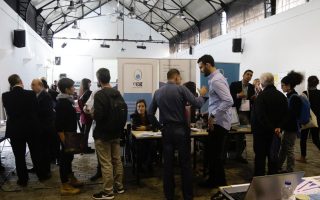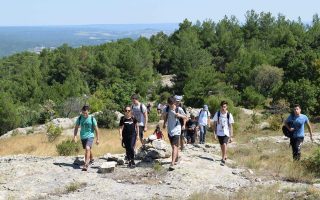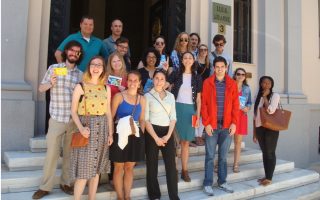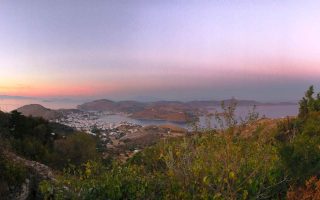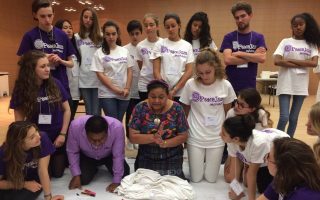Update for Greek school history textbooks
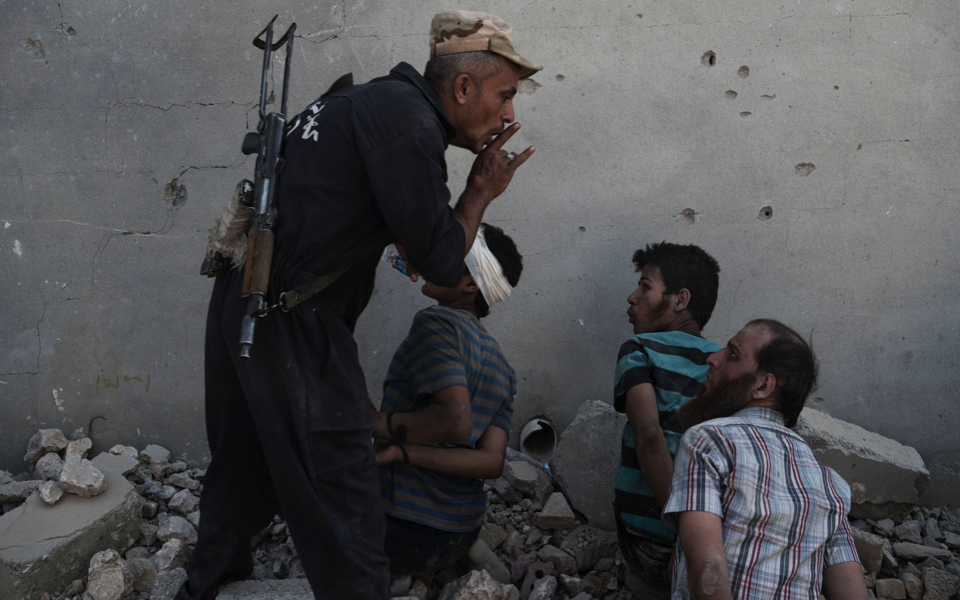
Jihad, the Greek Civil War, genocides, minority rights, the Holocaust, syndicalism, the modern refugee crisis – these are some of the topics that a working group of historians will be adding to the history curriculum of the new education program at schools, Kathimerini has learned.
The way history is being taught is changing, in both philosophy and method, “with the aim of moving away from the mindless repetition that has become so common in the classroom, and imbuing students with a sense of historical perspective and consciousness,” says George Kokkinos, professor of history at the University of the Aegean and a member of the six-person team of experts comprising educators with specialized studies in history and education. The proposal is modern, factual and very likely to leave students with a sense of “woe.”
The factor that will determine the success of these changes is whether history classes will be taught by trained specialists in the discipline, and not by theologians, foreign language teachers, sociologists and so on, as is the case now, as teachers try to fulfill the minimum working hours. The final proposal sees the curriculum organized in such a way that the material can be completed before the end of the school year.
The team worked on the history curriculum for all grades between the third year of elementary school and the first year of high school. According to the curriculum plan for the unit on Islam in the fifth year of elementary: “The goal is to teach children the historical context of the birth of Islam, the new monotheistic religion that originated in the East. The goal is to help them understand the meaning of jihad within the Muslim religion, and separate that from the misunderstandings, distortions, or propaganda repeated today by fanatics and hate groups.”
First-year high school pupils will be taught about aspects of domestic history including the legacy of the 1946-49 Civil War, the April 21, 1967 coup d’etat, the postwar “economic miracle,” and the democratization process from the fall of the military junta until 1989. The unit titled “The End of the Cold War and the New Conflicts” also includes the collapse of communist regimes in Europe, the expansion of the European Union, the surge of China, the dominance of neoliberalism, and the abandonment of the welfare state. Students will be taught about the historical events that took place in Greece at the same time, deindustrialization and the fraying of the social fabric, the tourism boom, the change in consumption patterns and lifestyle, and the euro.
“Children need to develop critical historical thought. That’s why we decided that we need to start teaching the difficult issues that still affect society today from elementary school. For example, at a time of intense Islamophobia, shouldn’t we be pointing out the historical context behind the meaning of jihad, which is mistakenly projected by many as a holy war, when in the modern interpretation it refers to the inner struggle of man?” says Angelos Palikidis, assistant professor of history at the Democritus University of Thrace, who is also part of the team.
“History classes need to show the conflicts and traumatic moments in the journey of a people. History isn’t just teaching about events, but, primarily, students should be given a critical view of history with which they can examine modern historical concepts,” says Kostas Kasvikis (also part of the team), assistant professor of history at the University of Western Macedonia, adding that in the lower grades, “a different view of mythology, local and family history is adopted, while we pursue a familiarization with archaeology as a tool for the understanding of the fabric of human activity.” “We present the events in relation to the sociopolitical history and not so much with the political and military history. We are integrating political figures into the context in which they operated and stood out,” says Kokkinos.
At the same time, as noted by Vassilis Tsafos, associate professor at the University of Athens, a lot of emphasis is placed on the change in the teaching methods. He points out that there is a need to focus on the process of teaching, not just the material. In line with this goal, it is being suggested that students use proper sources, new technologies, maps, but also that learning be more more active, introducing dramatizations and role-playing activities.
